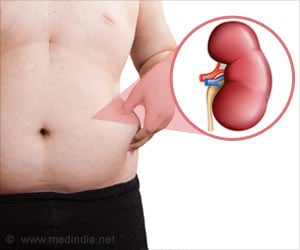Changes in guidelines for monitoring the metabolic syndrome have reduced cardiovascular risk in kidney transplant recipients and improved overall stability of kidney function. Researchers at the Nephrology and Hypertension Services, Hadassah-Hebrew University Medical Center, Jerusalem, Israel, reported that controlling diabetes mellitus (DM) was challenging for the transplant recipients, but the new guidelines had an impact on clinical practice, which transformed to better control of the metabolic syndrome.
The study examined whether the new guidelines for treating metabolic syndrome had an impact on the management of post-transplantation patients and the following treatment outcomes.Cardiovascular disease is a leading cause of death in kidney transplant recipients. Metabolic syndrome raises the risk for cardiovascular events and decreases graft survival. Recently, new guidelines for management of the metabolic syndrome, primarily hypertension, DM, and hypercholesterolemia - an excess of cholesterol in the bloodstream - have been introduced in an attempt to decrease cardiovascular risks among kidney transplant recipients.
Earlier, formal guidelines for special populations such as kidney transplant recipients were not as common as they have become in the last two decades. Instead, there were common practices as recommended treatment targets. ‘Kidney Disease - Improving Global Outcomes' (KDIGO), developed in 2003, has suggested guidelines for management of patients with kidney diseases. The 2009 KDIGO guidelines offer recommendations for the supervision of kidney transplant recipients, including screening and treatment goals.
In order to study the effectiveness of these guidelines, the researchers obtained data from kidney transplant clinic files from two follow-up periods - between 1994 and 1997 and between 2008 and 2011. They compared demographic data in these two follow-up periods and the treatments including monitoring and screening frequency for cardiovascular risk, immune suppression regimen, treatment for high blood pressure, diabetes and hyperlipidemia.
Results showed that patient's monitoring and screening during the second follow-up period were less frequent but more targeted. This reflects changes in clinic routines. Blood pressure and hypercholesterolemia were better controlled in the second follow-up period. In the second group, high fasting glucose levels were more prevalent, although more patients received treatment for diabetes mellitus. Most significantly, fewer patients suffered from deterioration of kidney functions during the second follow-up period.
The study was published in the Journal, Diabetology & Metabolic Syndrome.
Reference:
Inbal Houri, Keren Tzukert, Irit Mor-Yosef Levi, Michal Aharon, Aharon Bloch, Olga Gotsman, Rebecca Backenroth, Ronen Levi, Iddo Ben Dov, Dvora Rubinger and Michal Dranitzki Elhalel doi:10.1186/s13098-015-0083-7http://www.dmsjournal.com/content/7/1/90
Source-Medindia














